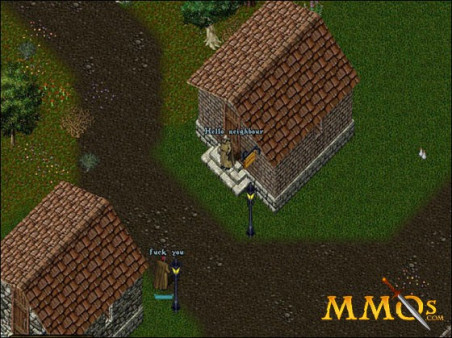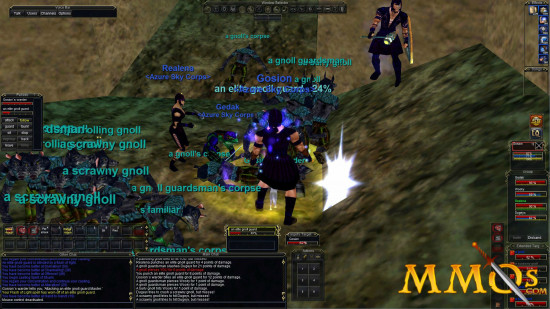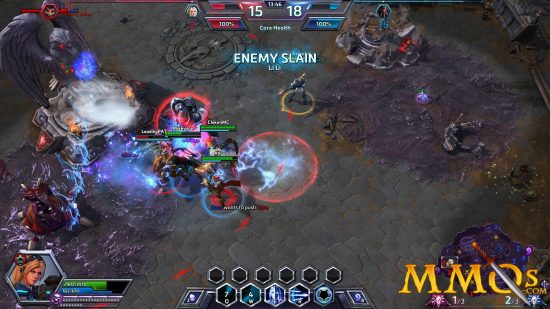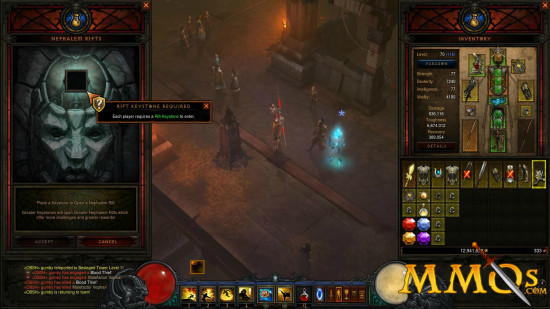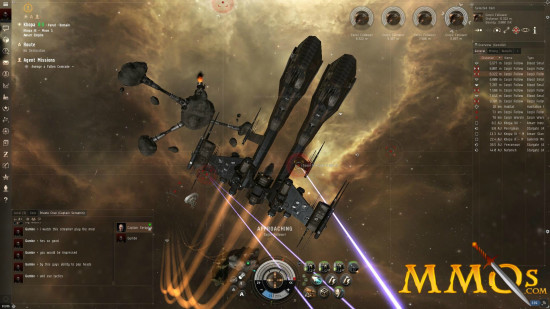Toxic Behavior: Is the Cure Worse than the Disease?
Flaming, trolling, and flat out harassment have been part of online gaming for as long as online gaming has existed. When the MMO genre was young, small, and largely filled with the D&D nerd elite, what we now consider toxic behavior was considered a normal part of the online experience. The largely male, tech savvy audience was either happy dishing out the grief or considered mature enough to deal with in-game discomforts. The earliest online games did little to police players. Ultima Online, for example, did not have explicit rules against hurling insults, stealing monster kills, scamming players out of their possessions, trapping players in inescapable islands, or spawn camping newly resurrected players for hours at a time. It was the Wild West era of MMORPGs and it was no place for the faint of heart.
The Good Old Days
As the genre grew with the switch to 3D graphics with EverQuest, things began to change. Customer service reps manually penalized players for rude behavior, even behavior made possible through the game’s own mechanics. It wasn’t just poor form to rush into a newly spawned monster camp that another group had been waiting for, it was now considered a form of griefing that could get you in trouble. Better filters were also introduced, such as the ability to block out all curse words in chat, and the ability to block all incoming communication from specified players. Most of my online gaming experience occurred around this era; loosely spanning from the late 90s and into the first decade of the 21st century. As a young man who often enjoyed playing the rogue, I chafed under what I considered to be insufferable constraints.
Training Mobs on People Was Fun, But Could Get You in Trouble
Looking back, I was naive. The era I grew up in is a veritable golden age compared to the regime we are now heading towards. As gaming has continued to move into the mainstream, it seems player interaction itself has come under attack under the banner of protecting players from even the chance of harassment. Let’s take a break from my rant to hear from the Brain Trust at Riot Games, the studio behind League of Legends. They have all but distilled Player Behavior into a mathematical formula. The lecture is about 25 minutes long and while that may seem a daunting commitment, I implore you to watch it all the way through.
Okay, you’re back. This is one of my favorite game design lectures to date. It uses reams of data to bring a few key truths to light. First, anyone can have a toxic moment. Events both in and out of game can trigger players to lash out either verbally (textually?), or through abusing game mechanics, like feeding in a MOBA or team killing in a FPS. Secondly, small ‘nudges’ in game design can have significant effects on players’ experience. Simply adding different phrases to the loading screen can increase or decrease toxic behavior. That’s great. Studios should use tricks like this to make their virtual experiences more inviting. But where Riot Games pulled off a magnificent balancing act between player freedom and player etiquette, other studios have dived head first down the slippery slope of expunging any chance of social bonding in their games.
Don't Bother Saying GLHF in HOTS... Because You Can't!
Blizzard Entertainment has been in the online gaming business longer than most. Even before World of Warcraft, their earlier titles including Starcraft, Diablo 2, and Warcraft 3 had diverse communities that were largely unmoderated. No admin controlled what deals went down in Diablo 2 trade channels, and no moderator was watching the lobby chat in Starcraft and Warcraft custom game lobbies. Many players remember their time in these games fondly, not just for the novel game mechanics but for the lasting online friendships that were forged in these games. With the direction Blizzard is heading, I don’t see those opportunities arising in their future titles. Take their latest title, the MOBA Heroes of the Storm. Blizzard took things a step further than Riot and completely removed all chat. It is impossible to talk to half the players in any given HotS match. Unlike League of Legends, there is no post game chat lobby either. I have played dozens of matches of Heroes of the Storm, but I have not made a single friend. How could I? So many opportunities to interact have been wiped clean. Blizzard pulled the same no-chat-allowed hustle in Hearthstone as well. I don’t know about you, but a great deal of the fun I had playing card games like Magic the Gathering was actually speaking to fellow fans before, during, and after matches. Would it have been so hard to default all chat off, but allow those who want to socialize the option to enable it?
No Trading Allowed... At Least They Got Rid of the Auction House...
Blizzard’s push into the mainstream has affected its Diablo franchise as well. While the Auction House debacle is best left behind us, the fact that legendary items are not tradable at all now severely cripples the social interactions that can originate in-game. When I play Diablo 3, I just jump on with existing friends and never speak with pubs since there’s no meaningful reason to bother with them. Contrast that with the more open ended Path of Exile where constant trading with a wide range of players is required to acquire new items and currencies.. It should be noted that Blizzard’s move is not necessarily a mistake. Most of the changes to Diablo 3 were made to make it easier to ship the console version and thus vastly increase their sales. Additionally, the mainstream audience doesn’t turn to online games for new social connections. Most people are content to jump in for a few hours alone, or with an existing group of real life friends. But that’s not what originally drew me to online games, and it's with a tinge of regret that I see one of the pioneers of online gaming going in a radically different direction.
The Last Bastion for Trolls, Griefers, and Flamers?
So what’s the point of all this rambling? It comes down to this simple point: if a game wants to foster a sense of community it has to either create or allow natural points of social interaction. Any attempt to reduce griefing, trolling, and harassment also has the side effect of reducing points of social interaction. And any attempt to eliminate a point of potential griefing also eliminates a point of potential social interaction. Niche games like EVE Online do still exist that offer hardcore players a free for all, but we should be more concerned as mainstream games slowly peel away our freedom to associate. Chat filters, and the ability to mute/block along with soft game design nudges are perfectly reasonable, but beyond that lies regression. Think about some of your most memorable MMO and MMORPG experiences. I bet they involve rallying with nearby players to help defeat a slightly higher level player griefing in a lower level zone. Or perhaps that time you had a massive rager on your team who you intentionally egged on for sheer amusement. Winning? Losing? No, Its about memorable experiences. And some of my most memorable experiences just couldn’t happen in today’s heavily policed games.
